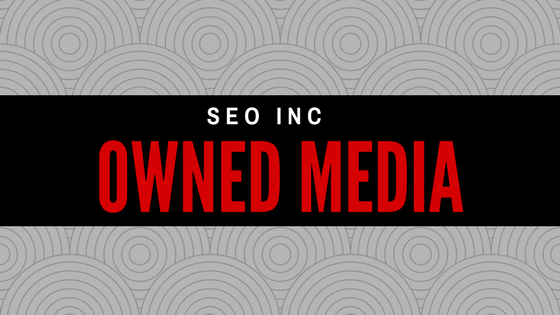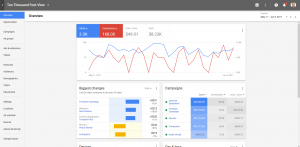— July 12, 2017

This is part two of a three-part series on earned media, owned media, and paid media. Last time, we discussed the unique qualities of earned media. Now, we’ll be answering the often-confused question of what is owned media, diving into the finer details to show you how to use it to increase your brand’s presence. Enjoy!
No business worth its salt should be without owned media. The only problem is other types of media are often mistaken for owned media, leading to wasted time, wasted money, and loads of overall confusion. But avoiding this is easy if you can answer one simple question: what is owned media? Is it a blog? A press release? What about a tweet or a Google ad? Answering all these questions is critical to making the most of your owned media.
What is Owned Media?
Owned media is any media or activity generated on communications channels that you control. When we said defining it would allow you to “make the most of your owned media,” the operative word there is your. Owned media is your media — it is synonymous with your brand and business, and it appears in places that your business owns and associates with. For example, your blog posts are owned media because your blog is part of your website (which you own). But so are the tweets on your business’s Twitter account, even though you don’t own Twitter. The ads you pay for on Facebook though, those are not owned media (by virtue of having paid for them, they enter the realm of paid media).
Why does this matter? Because people view media in particular ways depending on where it is generated — and more importantly, who generates it. This fine distinction is what ultimately determines how effective a certain type of media (owned, paid, or earned) is at driving brand success.
How Owned Media Helps Your Business
You’ve no doubt heard how important it is that your business have social media presence. Facebook, Twitter, Instagram, YouTube, your own blog — it never seems to end, and it’s a daunting task as well. But if you’ve ever wondered why it’s so important, it’s because of owned media.
So what is owned media in this context, and what does it do? Owned media extends your brand’s presence both digitally and socially. It acts as an extension of your brand message wherever people may find it. And above all, it is created by you. The posts on your blog that are written by you, the press releases uploaded to your website’s newsroom, your business’s Facebook posts and Tweets, even your website itself — these are all examples of owned media that operate as the public “face” of your business.
So how is it that so many businesses fall flat on their face when it comes to owned media?
How Companies Get Owned Media Wrong
Public perception can make or break a company’s owned media efforts. Therefore, it’s imperative that you answer one question: what is owned media best at? To fully understand the answer, you need to be looking for what companies (maybe even your own) has gotten wrong about owned media.
They roll owned media and paid media in the same budget. If you are a small business owner, you are already working within strict budget limitations. The news that you have to budget for an additional type of media might not sit well with you at first, but believe us when we say that you do not want to be focusing on one at the expense of the other. Many companies’ owned media efforts (blog, social media, etc.) are poorly executed — or worse, outright ignored — leading to poor relationships between the business and anyone who interacts with their owned media platforms. Similarly, a business that just pumps out content without a paid advertising strategy risks wasting its time and effort, as it may not have a current audience large enough to spread awareness of its brand.
Final thoughts: Owned media often causes problems for businesses because they aren’t clear on its definition. But once you realize its differences and are aware of its limitations, you can make a more concentrated effort to make it stand out with a strong content marketing strategy.
Digital & Social Articles on Business 2 Community
(71)
Report Post





